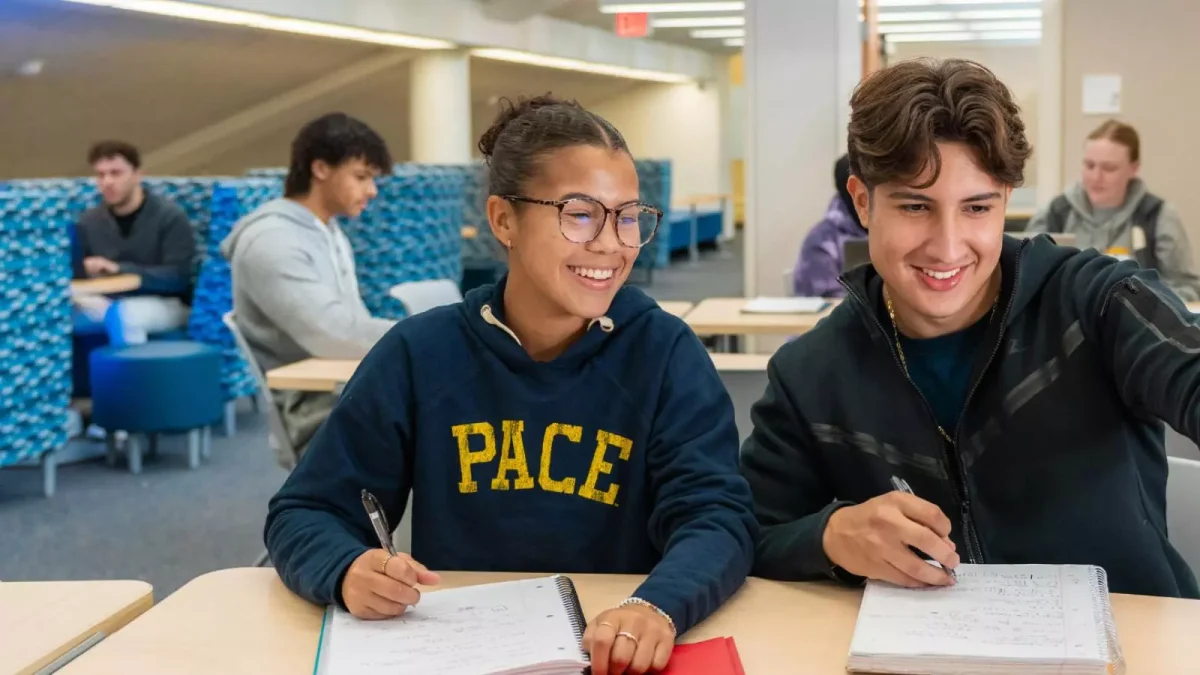Hannah Mills is a Junior Writing and Rhetoric student in the Pforzheimer Honors College who is currently working in the Learning Commons as a Writing Tutor.
It is in video after video: college students manifest they’ll be “academic weapons” as the semester begins and forfeit being the “academic victims” they were last semester; however, once midterms or finals approach these optimistic sentiments will shift as cramming sessions, caffeine consumption, and record-breaking all-nighters are compiled online as evidence to prove they’ve reverted back to their status as victims attempting to get by with only a passing grade.
The Urban Dictionary defines “academic weapon” as “an individual (typically a student) that acquires traits seen by many as scholarly” whereas an “academic victim” is the “inverse of an academic weapon; someone who is doing absolutely shit at school – awfully so and irredeemably bad.” As students, we all want to be “academic weapons” but how do we show to ourselves we are that student?
The end of the Fall 2024 semester marked the completion of my first semester as a Writing Tutor in the Learning Commons. A large part of my responsibilities (and the essence of tutoring) is helping tutees think about the approaches they take to their work and writing. Prompting this level of critical thinking includes learning how to ask open-ended questions that encourage the tutee to verbalize their thought processes, ideas, questions, and areas of confusion and discourage simple “yes” or “no” answers.
Watching and encouraging my tutees as they discovered and articulated answers to new questions helped illustrate how tutoring is a naturally reflective activity that challenges the tutee and the tutor to think critically about the session’s content and how each person works as a student.
The training I underwent each week alongside a small group of tutors from different disciplines inspired my own processes of articulation and questioning as we discussed topics, strategies, and notes from sessions I considered: What do I value when I sit down to do homework? How do I regularly approach assignments? What strengths do I use when completing an assignment or homework?
All the answers to these questions did not immediately come, which excited and intimidated me. My curiosity to uncover them was nurtured by the experience of learning how to help others think about their work and, in turn, be taught how to think about myself and my work; I was a detective and tutor.
This curious awareness permitted a deeper observation and notation of how various habits and values constructed and reinforced my identity as a college student. For example, because I value wellness and do my best work during the daytime, I don’t stay up very late and instead consciously create routines (or schedules) that encourage me to be well rested and sleep. This is one small thing I’ve learned about myself – there is still much to learn and take note of especially in times when I experience discomfort or struggle. This soft curiosity and commitment to learning about myself have helped me feel confidently equipped to approach the semester ahead of me no matter how many twists and turns it might take.
The questions you start asking yourself as difficulties and new experiences arrive don’t always have immediate answers; with the infiltrating role social media plays in our lives, it’s easy to see an identity or way of being that’s shiny or aspirational and wish for it but it becomes a rather empty wish when one doesn’t know how to fulfill that wish. Which is why I think the trend being an “academic victim” or “academic weapon” discounts the learning and sense of awareness one has to commit themselves to in order to truly be a better student. On the surface the straight A’s, aesthetic routines, etc. are appealing but the essential questions are often left unasked.
At the end of the fall semester, I helped my tutees celebrate and reflect on why they thought their semesters were successful and what they had learned that might help them continue being successful. After asking myself the same questions, I concluded that two methods (outlining & assignment scheduling) helped me balance, do better work, and not over – extend myself even through difficult moments.
As the Spring 2025 semester starts, I am excited to continue tutoring and being a student. Both are small parts of my holistic identity as a person but they each require a commitment to staying curious about myself, the ways I learn, and work.
Resources on campus for academic support include:
Mortola Library (PLV)
Learning Commons (https://www.pace.edu/learning-commons/hours-and-locations)
Monday through Wednesday: 10:00 a.m.–9:00 p.m.
Thursday: 10:00 a.m.–6:00 p.m.
Friday: 10:00 a.m.–3:00 p.m.
Academic Advising (https://www.pace.edu/academic-advising)
First Year Experience (https://www.pace.edu/new-student-experience-transitions/first-year-experience)
Transfer Experience (https://www.pace.edu/new-student-experience-transitions/transfer-student-experience)

